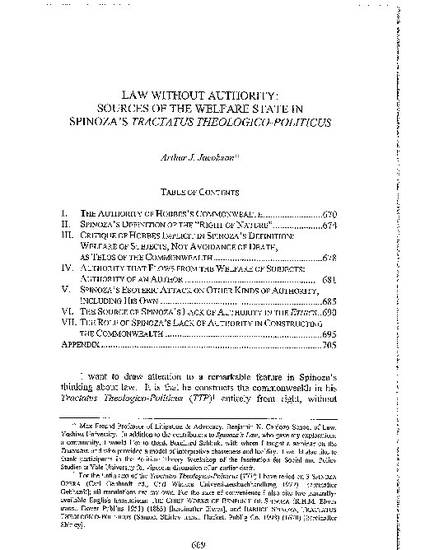
Article
Law Without Authority: Sources of the Welfare State in Spinoza's Tractatus Theologico-Politicus
Cardozo Law Review
Publication Date
1-1-2003
Abstract
In his Tractatus Theologico-Politicus (1670), Spinoza mounts an attack on authority in all its forms, including the authority of law and the state. Because authority in all its forms is a product of the imagination, obligation can never be justified. The subjects of Spinoza's commonwealth have no duties, only rights. Spinoza replaces the authority of the commonwealth with the welfare of subjects as the sign and the source of the commonwealth's flourishing. Spinoza was thus the first to propose that the only way for commonwealths to maintain the illusion of authority is by attending to the welfare of their citizens.
Publisher
Benjamin N. Cardozo School of Law
Disciplines
Citation Information
Arthur J. Jacobson. "Law Without Authority: Sources of the Welfare State in Spinoza's Tractatus Theologico-Politicus" Cardozo Law Review Vol. 25 (2003) p. 669 Available at: http://works.bepress.com/arthur-jacobson/6/
